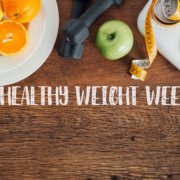Weeding Through Nutrition Information
By Annie Dodt, RDN | Registered Dietitian
Let’s face it, in the age of technology, there’s endless nutrition information available, making it difficult to be an informed consumer and knowing who and what to trust. Nutrition can be confusing to navigate and conflicting information from health influencers without expertise doesn’t make it any easier. Here are a few tips to help weed through what information is worth considering.
Who is the Information Coming From?
Who is the information coming from and what are their motivations? Are they requiring you to buy their specific expensive supplement or cleanse? Do they have credentials or specific training in the field that supports the information they provide? A dietitian requires a master’s degree, a supervised practice internship in the field of study, and credentialing through a national registrar. In 48 states, dietitians are also required to be licensed (Arizona and Michigan are the exceptions). A nutritionist does not require any of this.
Is There Scientific Evidence Backing the Claims They are Making?
Yes, while it is true science and nutrition are constantly changing as we learn and collect more data, making sure the information is coming from a reputable source is important for insuring its legitimacy. Ideally, the most trustworthy information should be backed by double-blind peer reviewed studies. These specific studies work to eliminate bias, so results are not influenced, and are critically evaluated and assessed by experts in the field to make sure the information is accurate.
Tailored Nutrition
Nutrition isn’t one size fits all. What works for one person may not work for you. Avoid nutrition information that offers blanket statements.
Cutting Out Entire Food Groups or Restrictive Eating Patterns
All foods fit. Be cautious of nutrition information that eliminates entire food groups or requires you to be overly restrictive with your intake. The exceptions to this are certain medical conditions or food allergies/intolerances.
Complex Arguments
Be wary of information that uses terms like “always” or “never.” As we know, science and nutrition are constantly evolving. There is room for change and exceptions.
For more help navigating the nutrition world, please visit with one of our knowledgeable friendly dietitians at NOAH! Whether it’s management of a chronic condition, coming up with snack ideas, or simply wanting to improve your eating habits, a dietitian is an expert in nutrition who can help create a personalized plan for you to help achieve your health goals.











